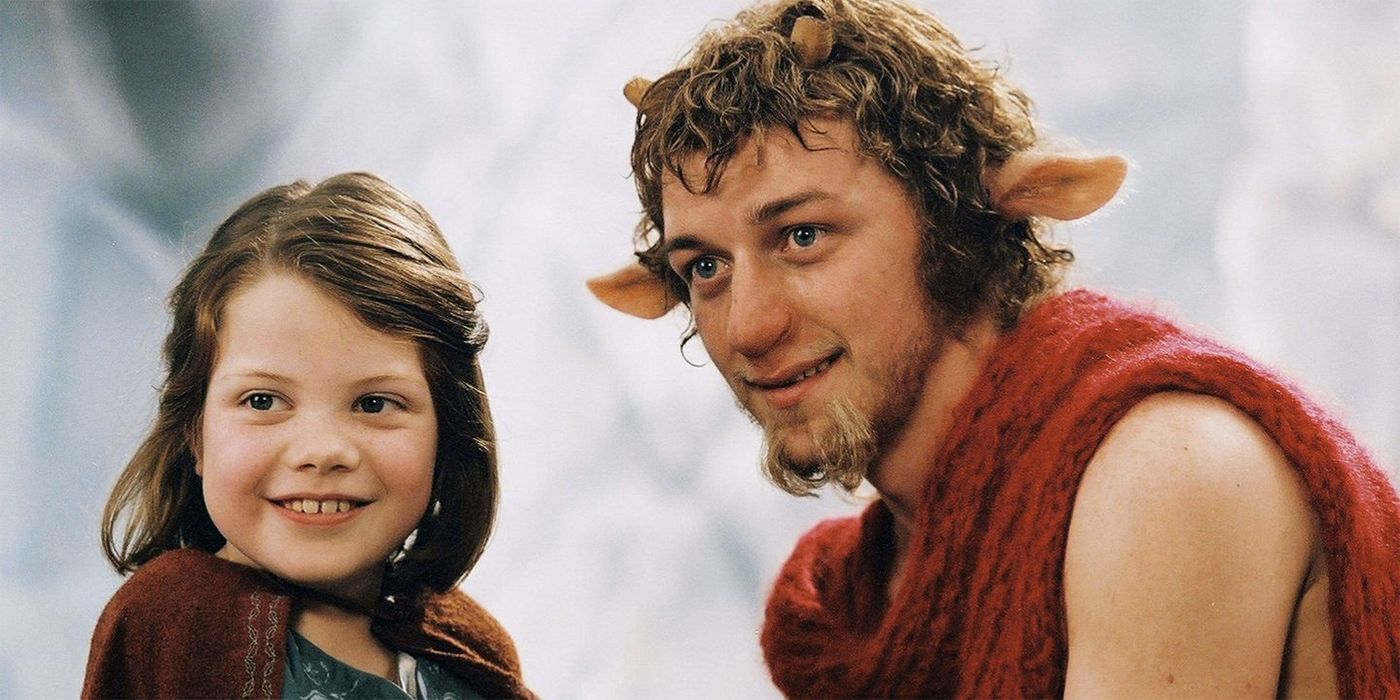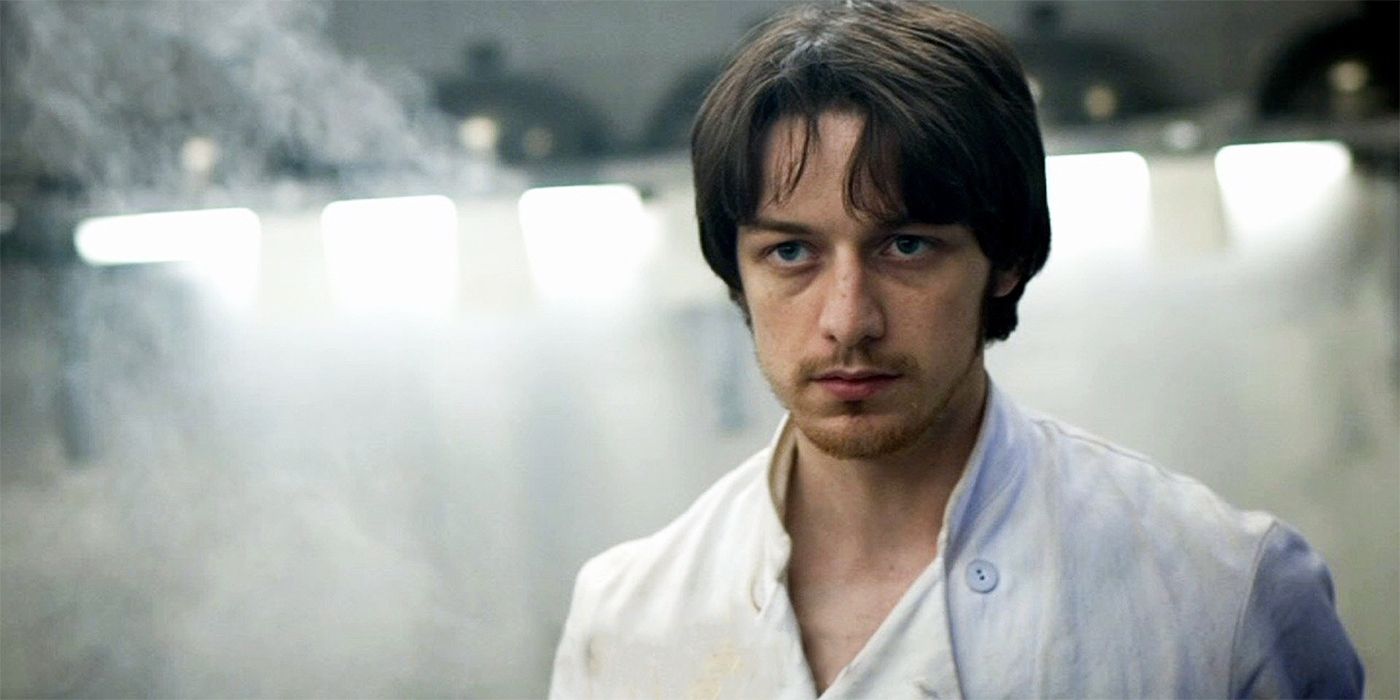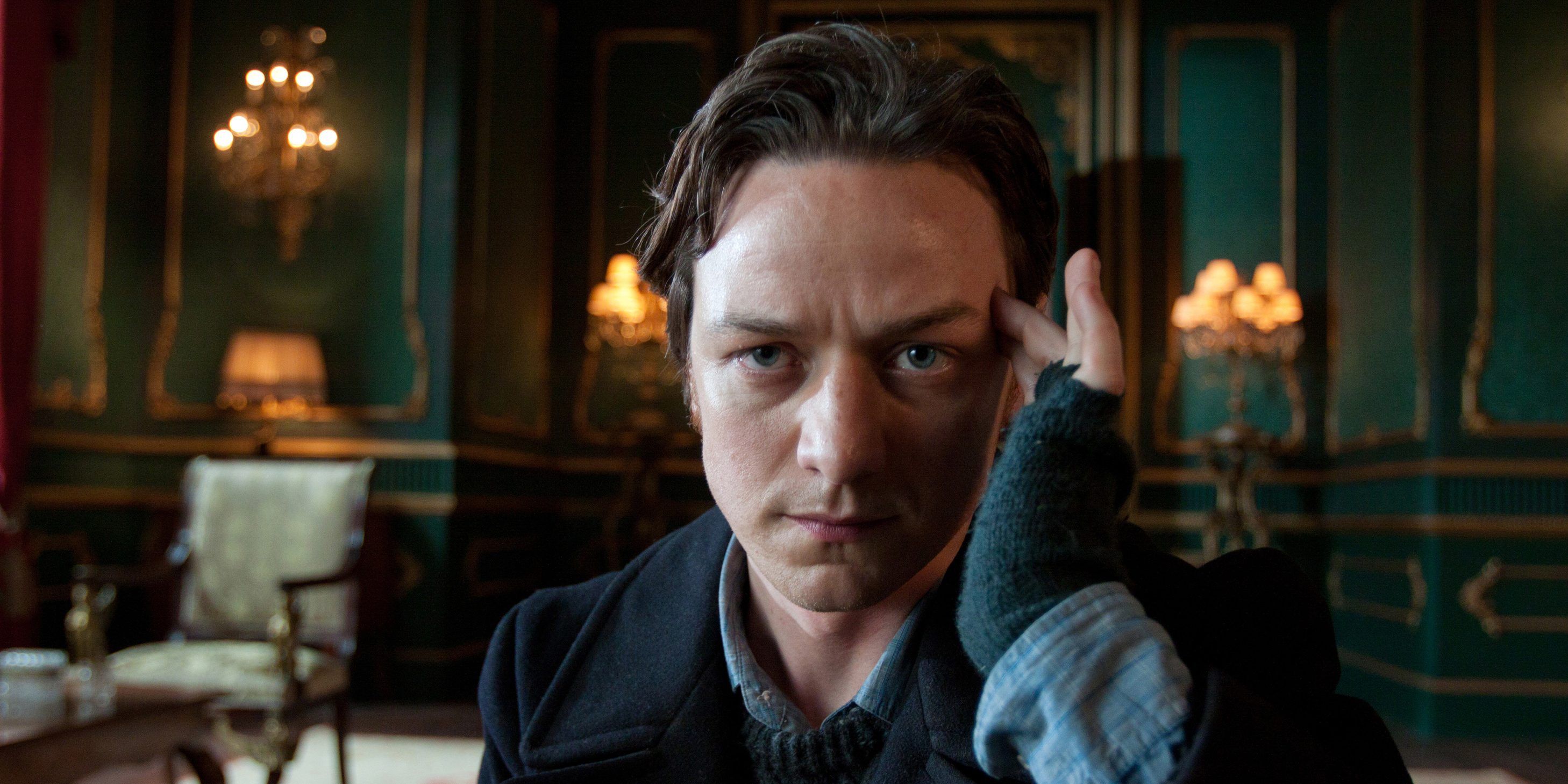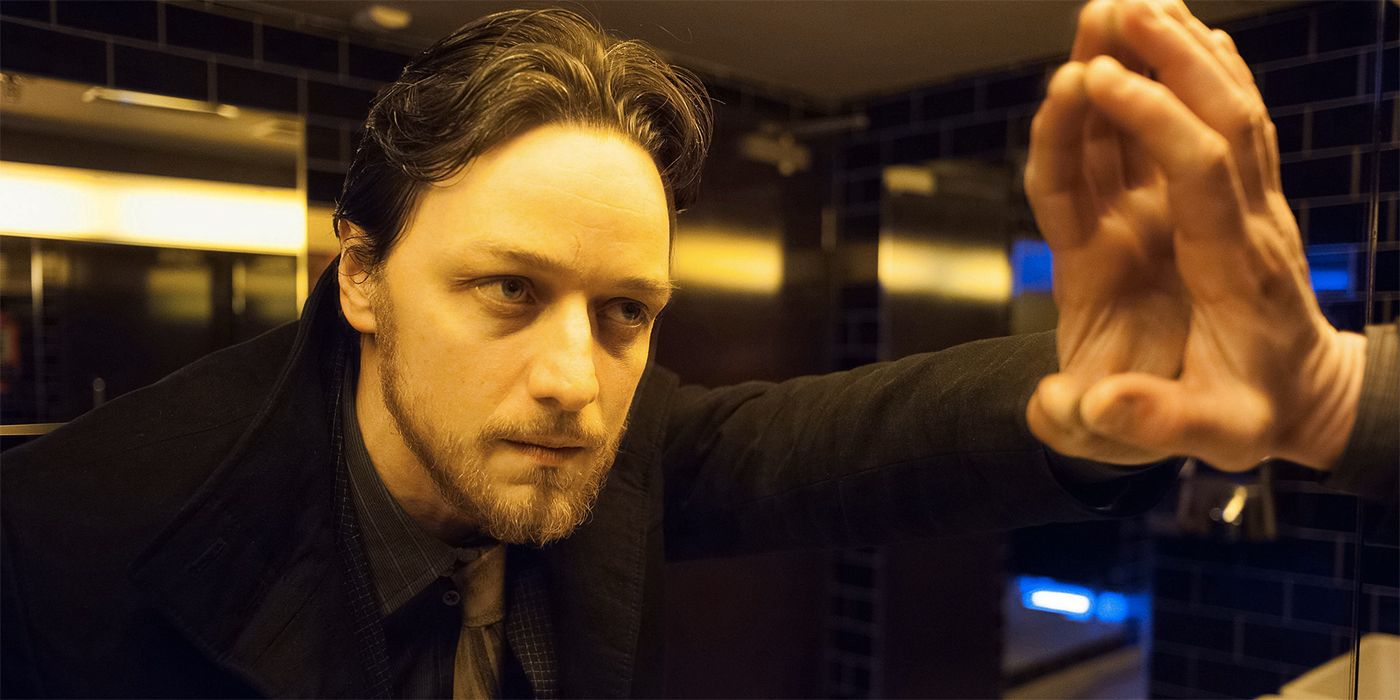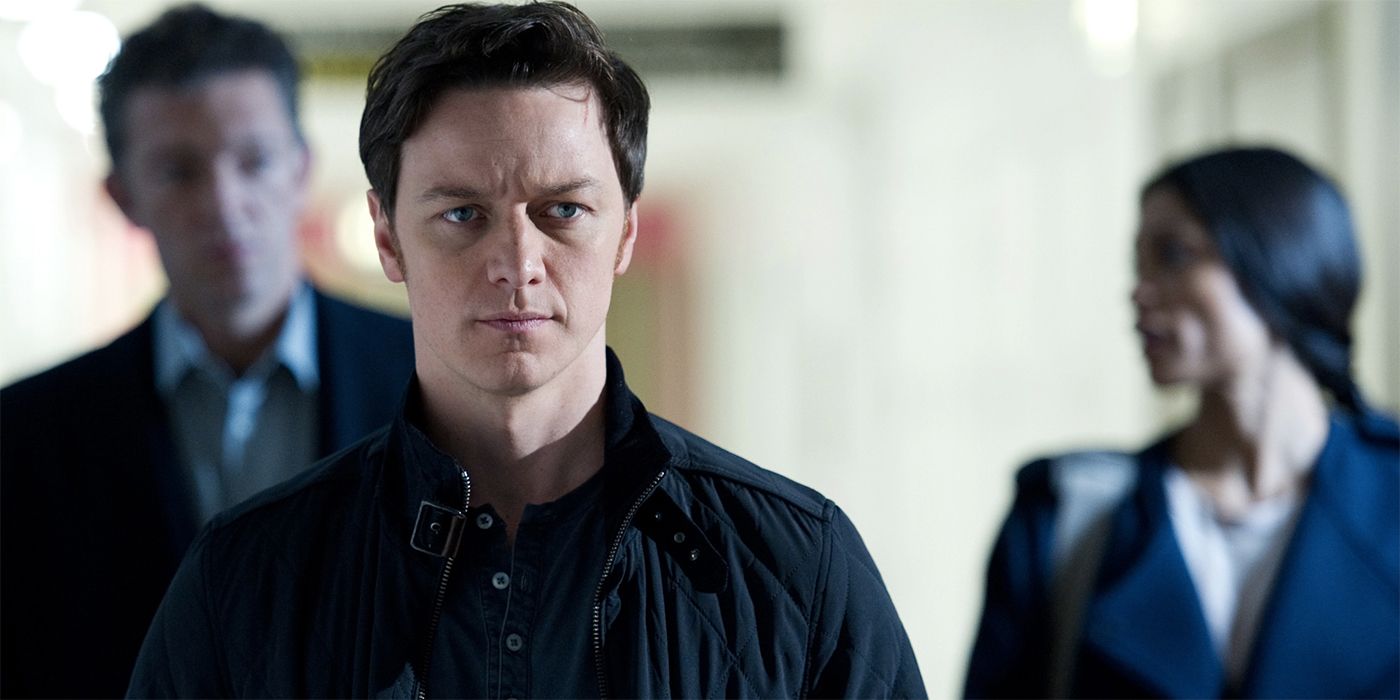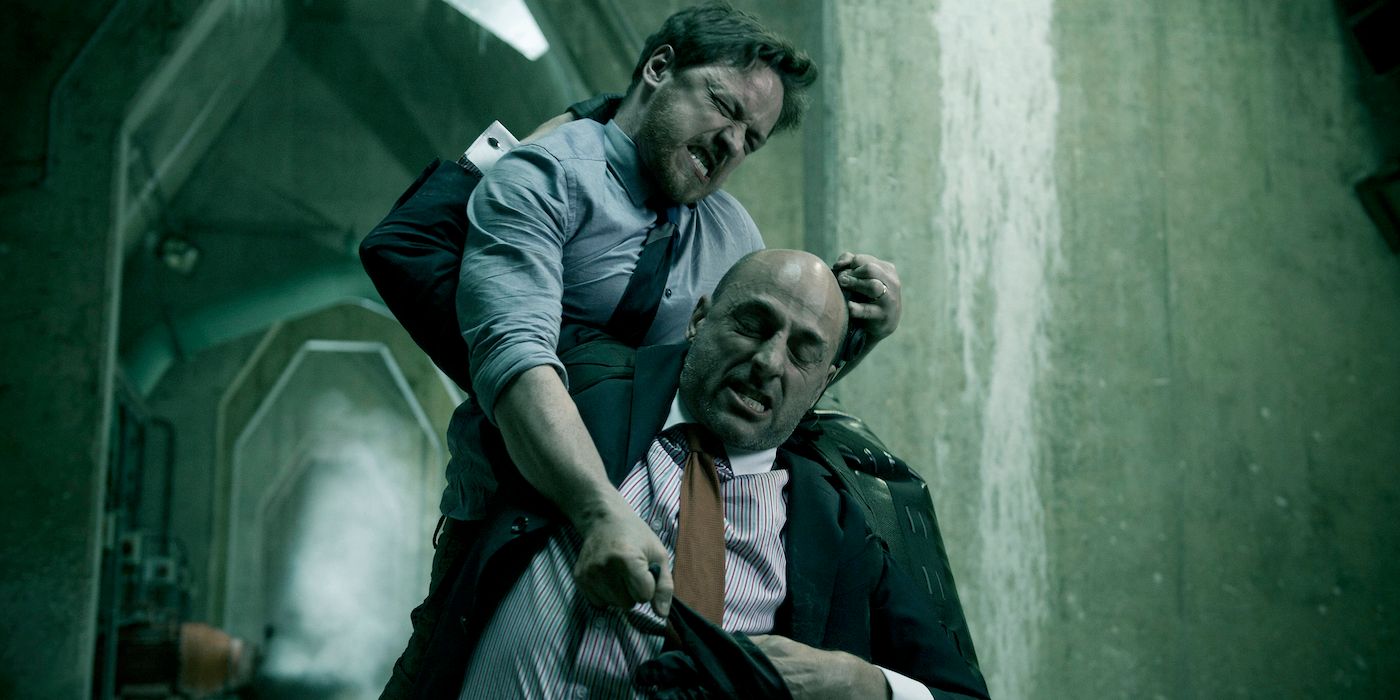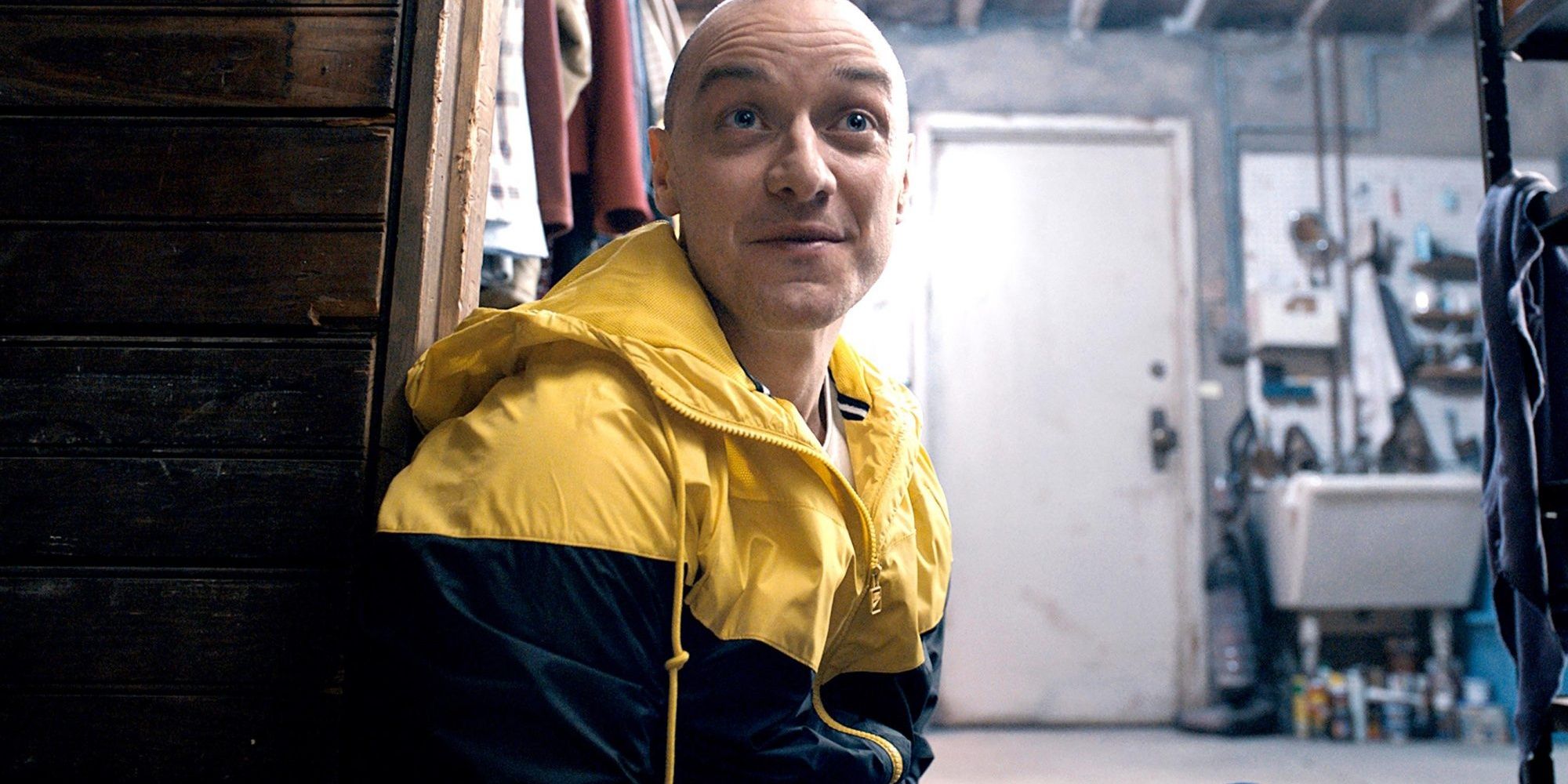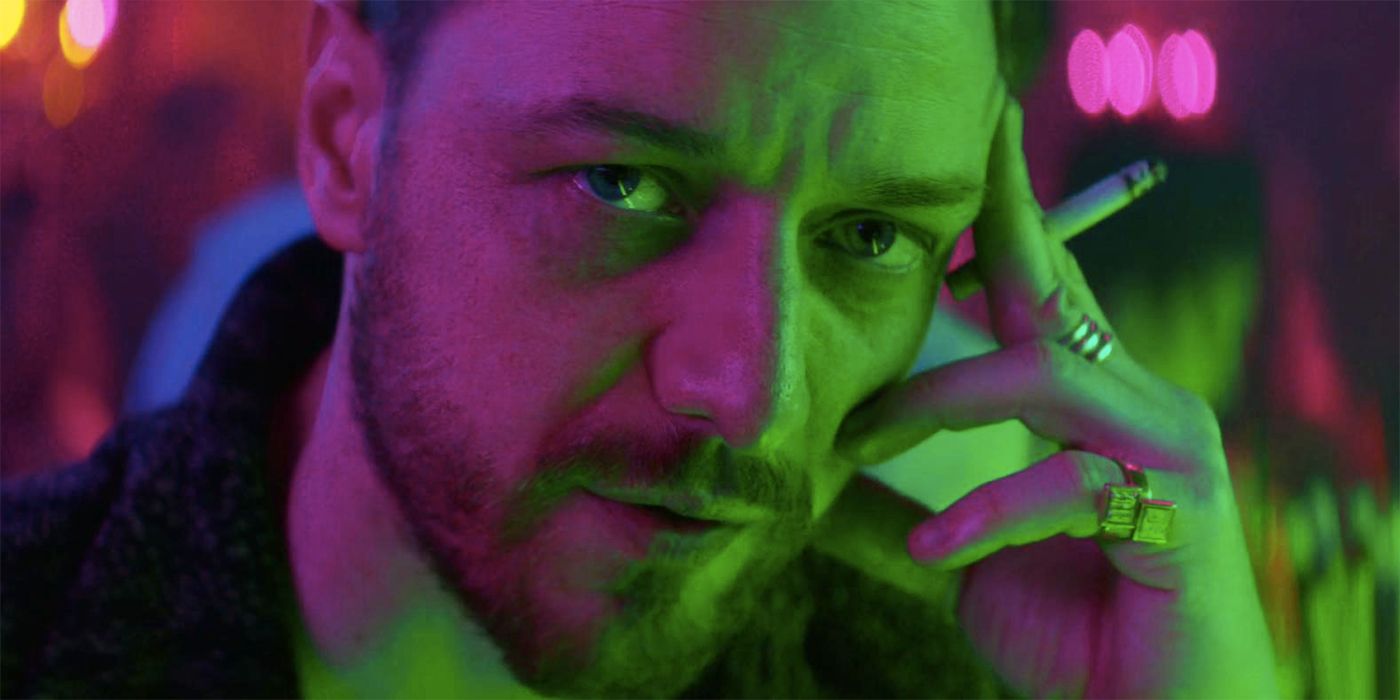James McAvoy is one of the most promising actors of his generation. We recently saw him pop up for a surprise cameo in Judd Apatow’s much-derided Netflix comedy The Bubble, and it's safe to say that McAvoy’s brief screen time is the only scene worth watching in the disastrous film. Before he became best known for his performance as Charles Xavier in the X-Men series, McAvoy was a breakout star on television, thanks to his role as Dan Foster in the 2003 miniseries State of Play.
McAvoy has done a great job at diversifying his filmography. Between awards-nominated dramas, experimental indie films, and major blockbusters, McAvoy's career still feels exciting. He's the type of actor who can even redeem a bad movie. Although Glass, Dark Phoenix, and It: Chapter Two film ended up being massive disappointments, McAvoy's performances in each were among their rare highlights.
McAvoy fans still have another season of His Dark Materials to look forward to, as an adaptation of The Amber Spyglass is in production at HBO. Here are the nine greatest James McAvoy performances, so far.
The Chronicles of Narnia: The Lion, The Witch and the Wardrobe – Mr. Tumnus
McAvoy got his first major franchise role in the very first The Chronicles of Narnia installment, The Lion, The Witch and The Wardrobe. While the later films in the fantasy series grew much darker in tone, the first film is relatively light family fare. The friendly faun Mr. Tumnus helps welcome young Lucy Pevensie (Georgie Henley) after she is separated from her siblings. While all the Pevensie are naive when they first come to Narnia, Lucy is particularly frightened of the fantasy world. Tumnus helps make her feel at home once more and invites Lucy to stay with him.
McAvoy didn't get buried underneath the prosthetic makeup work and brought out the character's sense of humor. His first encounter with Lucy in the woods is genuinely hilarious, as Tumnus has never seen a creature quite like Lucy. Their relationship is very heartwarming, and McAvoy is very generous with his youthful co-star. He puts her to sleep with a lullaby in one of the film's sweetest moments.
ShakespeaRe-Told – Macbeth
McAvoy is a stage veteran, so it only makes sense that he would eventually star in something Shakespearean. If you’re a fan of “the Bard,” then the underrated miniseries ShakespeaRe-Told offers a slightly different take on his best work. The series consists of four episodes, each adapting an iconic play in a modern context. McAvoy’s version of Macbeth is a three Michelin star chef, who rises to the ranks in a kitchen that is literally “cutthroat.” Since the stories aren't presented with the original text, McAvoy had the freedom to give a unique spin on the character.
Although the culinary setting may seem comical, the "Macbeth" episode is in no way a parody. Macbeth’s violent murders are only more gruesome using utensils. McAvoy delivers startling new renditions of the iconic monologues as he isolates himself in the kitchen; he dismantles a pig in one of the more disturbing cooking sequences. It's a thoughtful reexamination of the character that puts McAvoy's signature accent to good use, and it's also fun to compare the performance against McAvoy’s X-Men co-star Michael Fassbender, who played the role in Justin Kurzel’s 2015 adaptation.
Atonement – Robbie Turner
Only a true monster can make it through Atonement without shedding a tear. Joe Wright’s tragic World War II romance pulls at the heartstrings with the emotional story of a wrongfully accused man who is sent to the front lines. Based on the iconic novel by Ian McEwan, the film follows a blossoming romance between the wealthy Cecilia Tallis (Keira Knightley) and her housekeeper, Robbie Turner (McAvoy). Cecilia’s younger sister, Briony (Saoirse Ronan), falsely identifies Robbie as a sexual predator. Robbie is forced to abandon Cecilia and join the war effort.
McAvoy has never been more heartbreaking. His early interactions with Knightley are playful and amusingly innocent. Robbie even apologizes to Cecilia for a graphic love letter before he realizes that Briony intercepted it. It's painful to watch him gradually realize that he may never see his one true love ever again because of that initial charm. The film's powerful conclusion wouldn't be nearly as effective if the initial chemistry between McAvoy and Knightley wasn't there. McAvoy received a BAFTA nomination for Best Actor for his performance, only two years after he took home the "EE Rising Star" prize awarded to a promising young star.
X-Men: First Class – Charles Xavier
It’s not easy to step into a role first embodied by Patrick Stewart. The X-Men franchise had dipped in quality ahead of 2011’s X-Men: First Class. Thankfully, the prequel actually expanded the relationship between Charles Xavier (McAvoy) and Erik Lehnsheer (Fassbender) by showing their early friendship. McAvoy isn't quite the austere version of the character that Stewart embodied. He's actually a bit of a charmer! While it is fun to see the future Professor X use his mind-reading abilities to flirt with women, McAvoy showed the genuine dedication that the X-Men leader has for all mutants as he builds Cerebro.
McAvoy got to interact with Stewart himself, thanks to the time travel mechanics in Days of Future Past. The second prequel shows a dark chapter in the character's history onscreen; he is overwhelmed by the voices in his head and becomes addicted to medications that diminish his powers. "I don't want your future!" he screams at his future self. It's emotional to see McAvoy learn to find hope again, as his hopeful spirit has been so effective in First Class. Although X-Men: Apocalypse and Dark Phoenix proved to be disappointments, McAvoy’s performance wasn’t the issue. In fact, the complex relationship between Charles and his student Jean Grey (Sophie Turner) is one of the rare highlights of the last two installments.
Filth – Bruce Robinson
Trainspotting author Irvine Walsh’s controversial novel Filth was deemed “unfilmable.” The hectic, non-linear story peers into the mind of the outrageous Scottish police officer Bruce Robinson (McAvoy). Robinson is a violent drug addict with a wicked sense of humor. Filth isn’t for the faint of heart, but for those that can stomach extreme content, McAvoy commits to the truly eccentric source material. While he chews the scenery and takes pleasure in wrecking havoc (he goes as far as to let the air out of a young boy's balloon), McAvoy showed the pain behind Robinson's addictions. He's become addicted to the all-consuming nature of the "performance" that he is constantly putting on.
Filth concludes with a shocking plot twist, and McAvoy breaks the fourth wall on several occasions. It easily could have felt like the film was lionizing the character's behavior if there was even a hint at a redemptive arc, but McAvoy's unfiltered performance didn't attempt to sympathize with Bruce. He's a fleshed-out character with serious mental issues, but it doesn't feel like McAvoy is making a joke out of Bruce's deflective comments about suicide. It was a brave choice for an actor to make, and the tonal risks of Filth wouldn't have paid off otherwise.
Trance – Simon Newton
The heist thriller Trance is one of the most underrated films in Danny Boyle’s filmography. Presented in a nonlinear fashion, the film takes place in the aftermath of a robbery, in which Francisco Goya's 1798 masterpiece Witches in the Air is stolen. One of the auctioneers, Simon Newton (McAvoy) helped out the culprits. Simon has no memories of the events. In order to find the painting, the heist leader Franck (Vincent Cassel) sends Simon to the psychotherapist Dr. Elizabeth Lamb (Rosario Dawson). Their romance ties into a compelling series of twists and turns.
Trance's nonlinear narrative is fairly confusing, but McAvoy represents the audience's perspective. McAvoy learns things about his own past at the same time that the viewers do. He perfectly conveys Simon's confusion as the film flashes back to the traumatic events. There's something genuinely charming in Simon's relationship with Elizabeth. Trance often feels like it's intentionally confusing, but McAvoy's chemistry with Dawson gives the audience a reason to invest in the twists and turns.
Welcome to the Punch – Max Lewinsky
McAvoy’s amazing run of underrated British genre films in 2013 was capped off with the action thriller Welcome to the Punch. The film belongs to the same subgenre of “underworld London crime movies” that started with Snatch. Welcome to the Punch is relatively straightforward: McAvoy is an obsessive cop, and Mark Strong is a notorious bank robber. While there’s nothing surprising about Welcome to the Punch, the strong lead performances definitely elevate the material.
Max Lewinsky has one motivation: redemption. He was humiliated by his failure to stop Jacob Sternwood (Strong) during the opening sequence and suffers through an embarrassing press cycle. Sternwood spared Max's life during the heist, and Max is starting to wish that he pulled the trigger. Yes, Welcome to the Punch is essentially Heat, but McAvoy does his best Al Pacino impression as Max's obsession grows. His final standoff with Sternwood is surprisingly emotional; Max questions whether he should make the same decision that Sternwood did. McAvoy shows the pain behind Max's eyes as he evaluates his goals.
Split – Kevin Wendell Crumb/The Hoard
In many ways, McAvoy’s many performances in Split could easily make up this entire list. There isn’t a more challenging role in his entire career. In the film that helped spawn M. Night Shyamalan’s comeback, McAvoy delivers a tour de force performance as the many personalities that reside in Kevin Wendell Crumb. It’s an amazing showcase for his range. McAvoy is terrifying, sympathetic, and funny all at once. While the film's depiction of mental illness has been controversial, McAvoy showed that Kevin is ultimately a victim. He's been denied the help that he needs, and Glass reveals that a sinister scheme was at play. Elijah Price (Samuel L. Jackson) had orchestrated a tragedy within Kevin's childhood.
Even though this isn't revealed in Split, McAvoy still made Kevin sympathetic. It makes his eventual bond with the isolated teenager Casey Cook (Anya Taylor-Joy) more impactful, even after he's tortured her. One of Kevin's personalities is a 9-year-old boy, and adopting the childish qualities was certainly a risk. However, McAvoy is actually very convincing. He's also quite captivating as he makes the physical transformation into "The Beast."
Atomic Blonde – David Percival
Charlize Theron got her chance to kick some serious butt in David Leitch’s gut-wrenching 2017 adaptation of the graphic novel The Coldest City, but Atomic Blonde is far from just a John Wick clone. The film does a great job weaving in various spies, assassins, and political agents. Of the many characters that Theron’s MI6 agent Lorraine Broughton has to deal with, McAvoy’s David Percival is one of the most memorable. McAvoy’s foul-mouthed field agent isn’t your typical spy; he adds a needed bit of comic relief to the brutal film.
Lorraine makes contact with Percival during her assignment in Berlin. None of the characters in the film are trustworthy, but Percival is particularly suspicious. McAvoy shows how he's able to mask his true intentions through his Bohemian behavior. Percival frequents the Berlin nightclubs and seems to be having a blast; it's very distinct from Lorraine's cold attitude. At the drop of a hat, McAvoy is able to completely shift his persona. He becomes instantly terrifying when Percival betrays Lorraine. McAvoy brought a sense of danger to the film. Even Percival seems unclear of where his loyalties actually lie.


